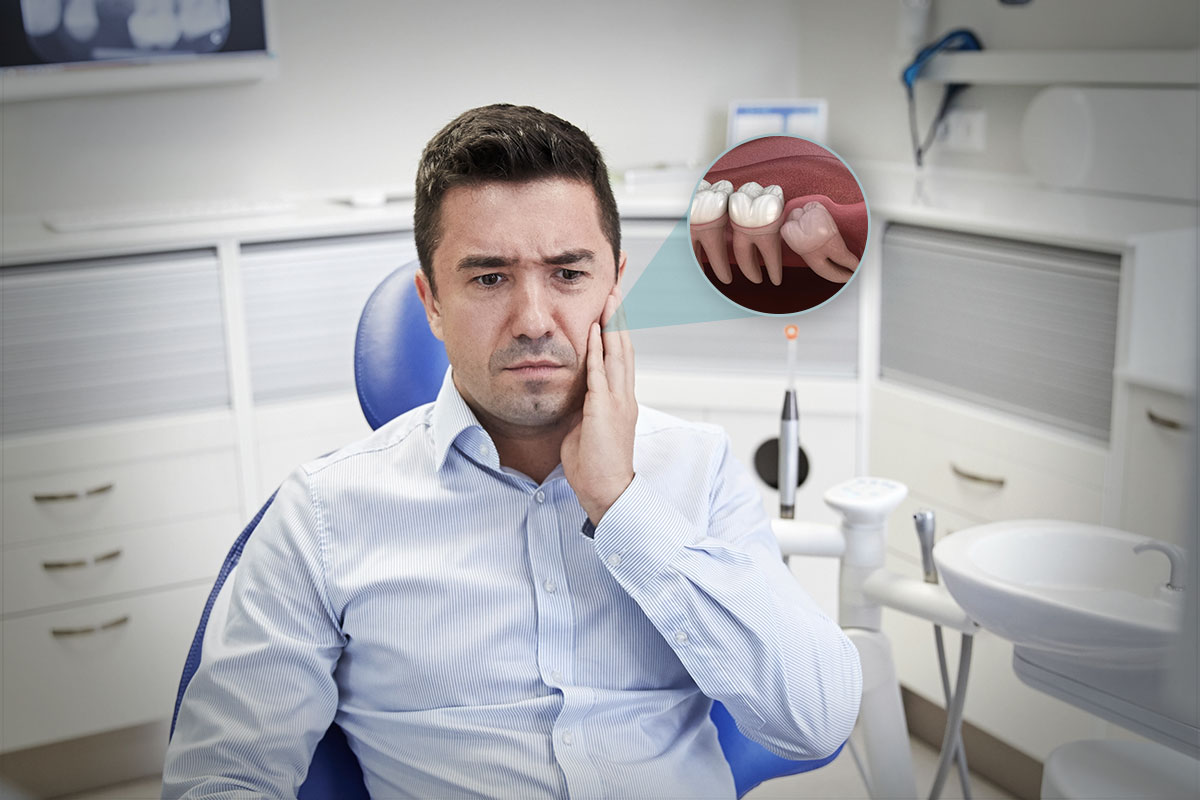Which tooth is considered the most notorious? It is definitely the third molars, also known as wisdom tooth. They are known to be notorious as they are the last to grow, but still, they do not grow too easily. Wisdom teeth cause certain problems while growing, such as pain, discomfort, impaction, infections, and misalignment issues with the other teeth. If left untreated, these problems can worsen and affect your oral and overall health.

To prevent and treat these problems, dentists usually recommend a Wisdom tooth removal procedure. Kare Dental Clinic excels in wisdom tooth removal in Malad West, Mumbai. Whether it be a simple procedure or a complex surgical one, our team efficiently carries out the procedure to provide you with relief from the pain that wisdom teeth have been causing.
Why Is Wisdom Tooth Removal Necessary?
Extracting a wisdom tooth might be necessary in certain situations:
Impacted teeth: Impaction of a wisdom tooth means that the tooth is partially stuck in the jawbone and does not fully emerge. If your condition is similar, they might need extraction.
Prevention of overcrowding: When your mouth does not have enough space to accommodate a set of molars, its growth may push other teeth out of alignment.
Infection and gum disease risks: Impacted wisdom teeth often leave an open gap for the entry of bacteria, paving the way for infections and gum diseases.
Tooth decay in inaccessible areas: Due to the location of wisdom teeth, it gets difficult to clean them, posing a risk of cavities.
Cyst or tumor formation: In some cases, an impacted wisdom tooth may cause the formation of cysts or tumors, which may damage the jawbone and surrounding teeth.
Signs You May Need Wisdom Tooth Removal
When you need a wisdom tooth removal, there can be certain signs, such as:
Persistent pain or discomfort: A continuous pain or discomfort in the back of your mouth may mean that your wisdom tooth is on its way. If this pain gets too much to handle, this might need an extraction of wisdom teeth.
Swelling around the gums or jaw: Swelling, redness, or tenderness of the gums due to difficulty in wisdom tooth eruption and can be reduced by extracting the wisdom tooth.
Difficulty opening the mouth or chewing: An impacted wisdom tooth may affect the TMJ and make it difficult to open the mouth or chewing.
Bad breath or a foul taste: Persistent bad breath or a foul taste in the mouth can often be caused due to an infection, and when it is along with the growth of a wisdom tooth, that might be the root cause.
Visible crowding of other teeth: When your wisdom tooth starts growing, and it causes other teeth to visibly shift away, it might be high time to get rid of the new tooth and protect the rest.
Recovery Tips
It is important to observe some tips for faster and better recovery:
Rest: Resting after a wisdom tooth removal in Malad West is the most important thing after a wisdom tooth extraction. Also, physical activities should be avoided for the first 24 hours, as they might affect the blood clot at the site and lead to bleeding.
Rinsing with warm water and salt: Rinsing with warm water and salt helps to reduce swelling.
Soft and cold foods: In the initial days, stick to a soft, cold diet, including yogurt, smoothies, and soups. Also, if you are opting for soups, avoid anything overly hot or spicy.
Maintain oral hygiene: Brush your teeth as usual, but avoid brushing near the extraction site to avoid bleeding.
Follow-up appointments: Follow up with the dentist for an assessment of your condition to ensure you are recovering well.
FAQ's
No. A wisdom tooth removal is virtually painless as it is done under anesthesia. Post-procedural pain can be relieved by dentist-recommended pain relievers.
Basic healing after a wisdom tooth removal may take a week, while complete recovery may take a few weeks.
Not always. Schedule an appointment to know if all four of your wisdom teeth need to be removed.
It is recommended to eat soft, cold foods for 24-48 hours after the procedure, avoiding hard, spicy, or hot foods.
Wisdom teeth, or third molars (M3s), are the last permanent teeth to erupt, typically emerging between the ages of 17 and 25.

